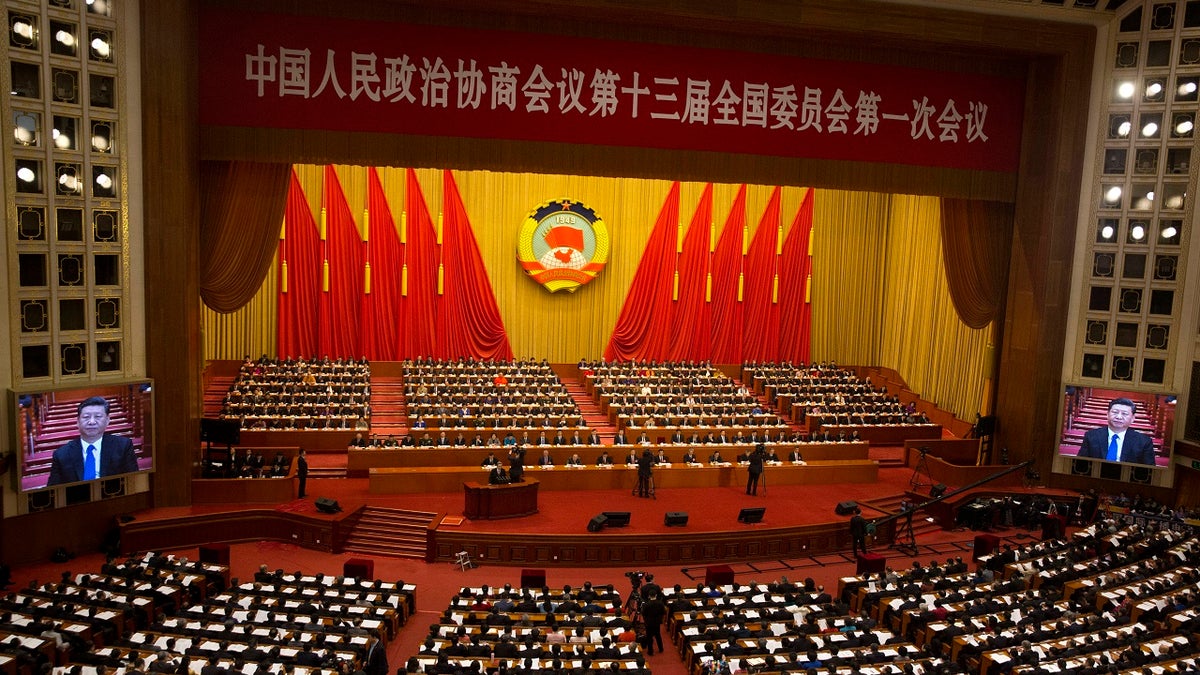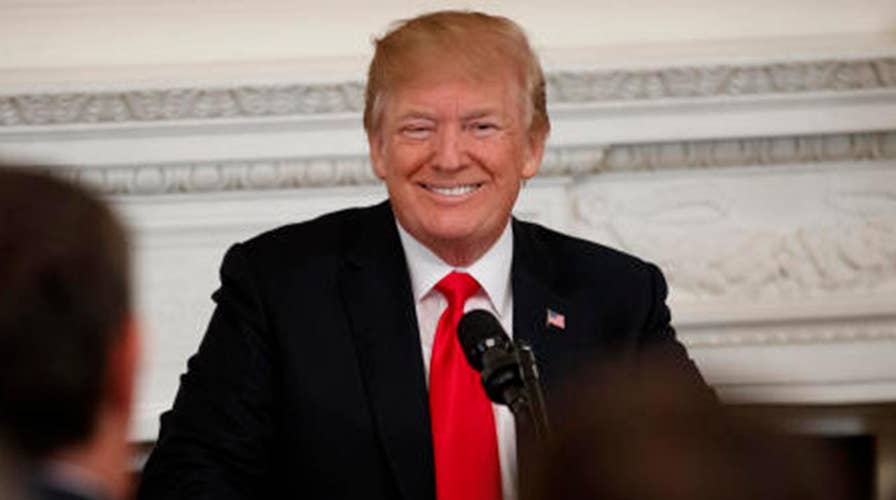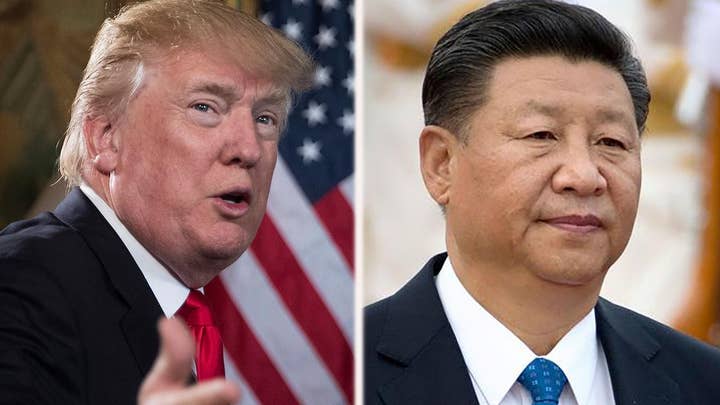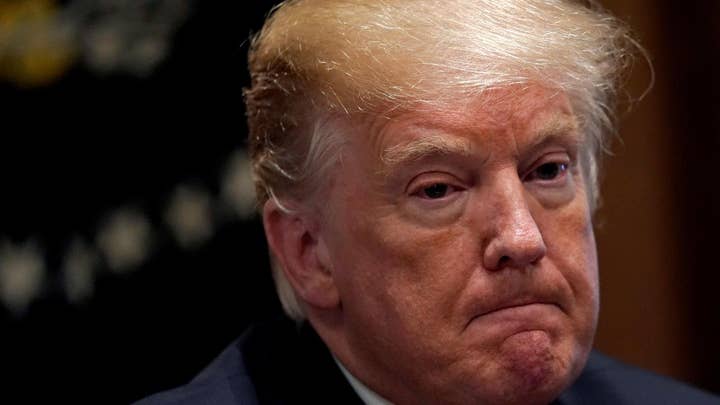Trump criticized over 'president for life' joke
According to CNN, Trump said 'president for life' is not a bad idea in reaction to proposal being considered in China; is the backlash the president's remarks are receiving fair?
When China's legislators gather Monday, they are expected to set the stage for President Xi Jinping to rule indefinitely, as they vote on a constitutional amendment to end presidential term limits.
The passing of the legislation would effectively undo decades of efforts to prevent a return to dictatorship. The 10-year, two-term limits on the presidency were first put in place by former Chinese leader Deng Xiaoping in 1982.
Deng’s policy was to prevent returning to the lifelong dictatorship typified by Mao Zedong’s chaotic 1966-1976 Cultural Revolution. Mao ruled for nearly 30 years until his death in 1976.
In effect, the proposed change would allow Xi, already China's most powerful leader in decades, to extend his rule over the world's second-largest economy potentially for life.
On Sunday, Zhang Yesui, the legislature’s spokesman, told reporters the move was “only aimed at” bringing the office of the president in line with Xi’s other positions that do not have term limits. Xi is also head of bodies that oversee national security, finance, economic reform and other major initiatives, effectively sidelining the Communist Party's No. 2 figure, Premier Li Keqiang.
"It is conducive to upholding the authority of the Central Committee of the party with Comrade Xi Jinping at the core and also to unified leadership," Zhang said.
In Florida on Saturday, U.S. President Donald Trump commented on the impending change in Xi's status.
"He's now president for life. President for life. And he's great," Trump said, according to a recording obtained by CNN. "I think it's great. Maybe we'll give that a shot someday."
"He's now president for life. President for life. And he's great. I think it's great. Maybe we'll give that a shot someday."
Trump's remarks were reportedly met with laughter and applause during a luncheon for Republican donors at his Mar-a-Lago estate.

Chinese President Xi Jinping is seen a large screens at the opening session of the Chinese People's Political Consultative Conference in Beijing's Great Hall of the People, March 3, 2018. (Associated Press)
Yet a number of prominent Chinese figures have publicly protested the move despite the risk of official retaliation.
Li Datong, a former editor for the state-run China Youth Daily, wrote that lifting term limits would "sow the seeds of chaos." He urged Beijing's lawmakers to exercise their power by rejecting the amendment.
Wang Ying, a businesswoman who has advocated government reforms, called the proposal "an outright betrayal."
Other observers note that the seeming hastiness with which the proposal was introduced has been almost as alarming as the plan itself. The Chinese public has grown accustomed to some measure of public debate about new laws or changes to existing laws, as some plans go through three or even four readings prior to a final vote.
But not in this case, observers such as Dali Yang, a China expert at the University of Chicago, pointed out.
"When it comes to the revision of the constitution, how could it be that there is not a significant public commenting process, that there is not a more deliberative review process?" Yang said. "That's truly a remarkable contrast."
Xi's consolidation of power will be seriously tested by how he tackles grave challenges at home and abroad.
Domestically, slowing growth in the state-dominated economy is a chief concern; it is forecast to fall further as regulators try to get rising debt in check by tightening controls to cool booms in bank lending and real estate sales.
Abroad, China is faced with maintaining stability and avoiding the outbreak of war on the neighboring Korean Peninsula. Further, another key task is managing escalating frictions with the U.S. that could risk evolving into a trade war.
The Associated Press contributed to this report.



